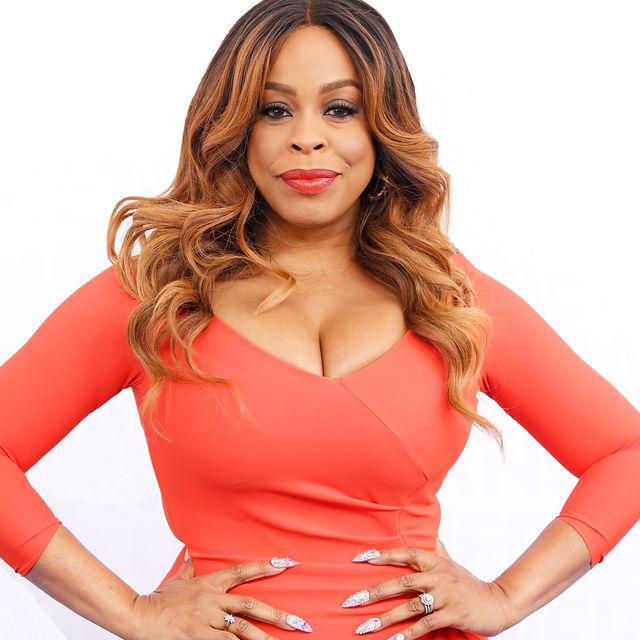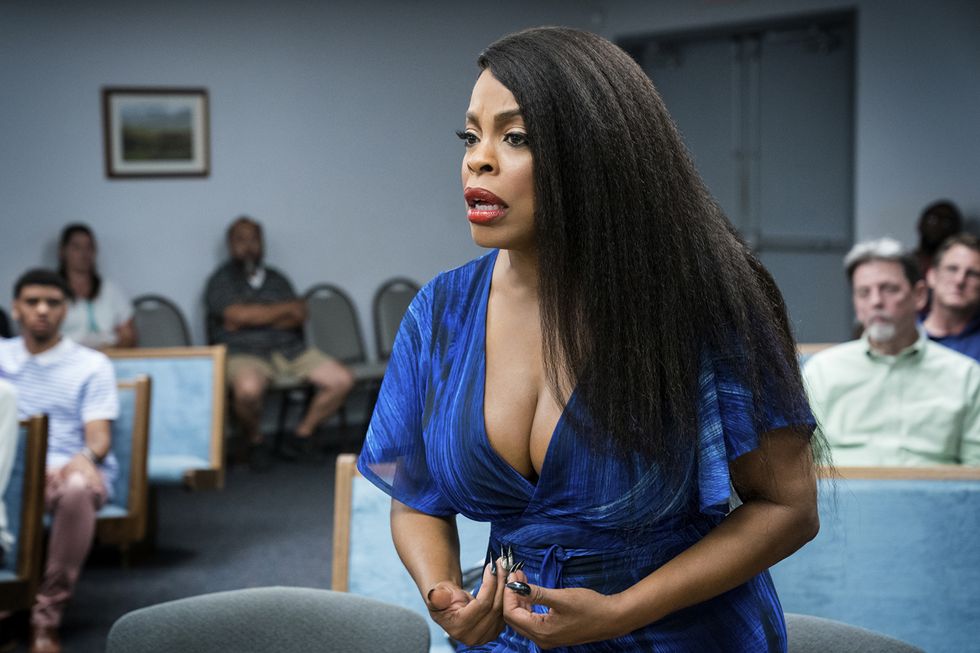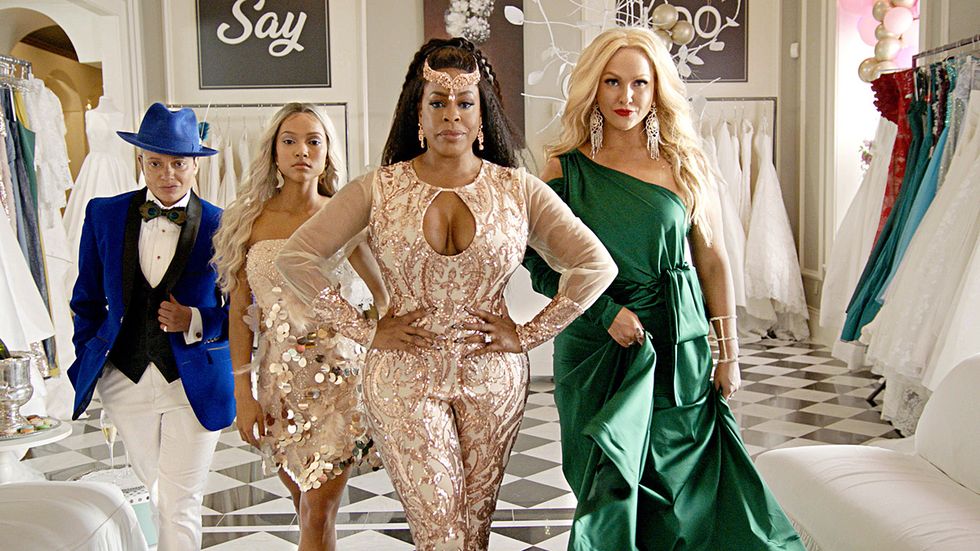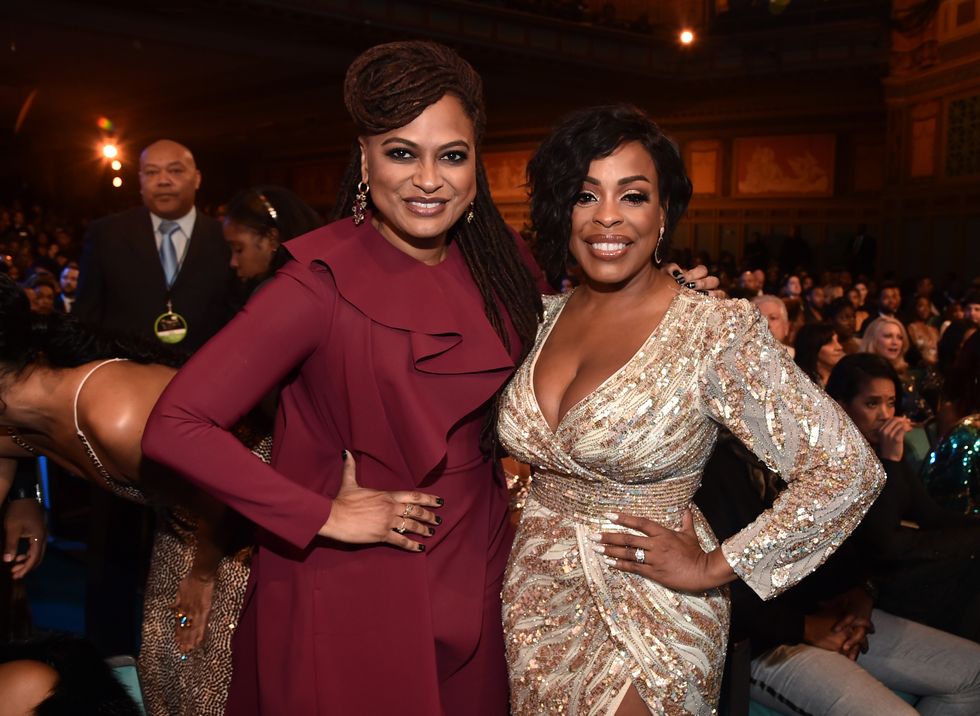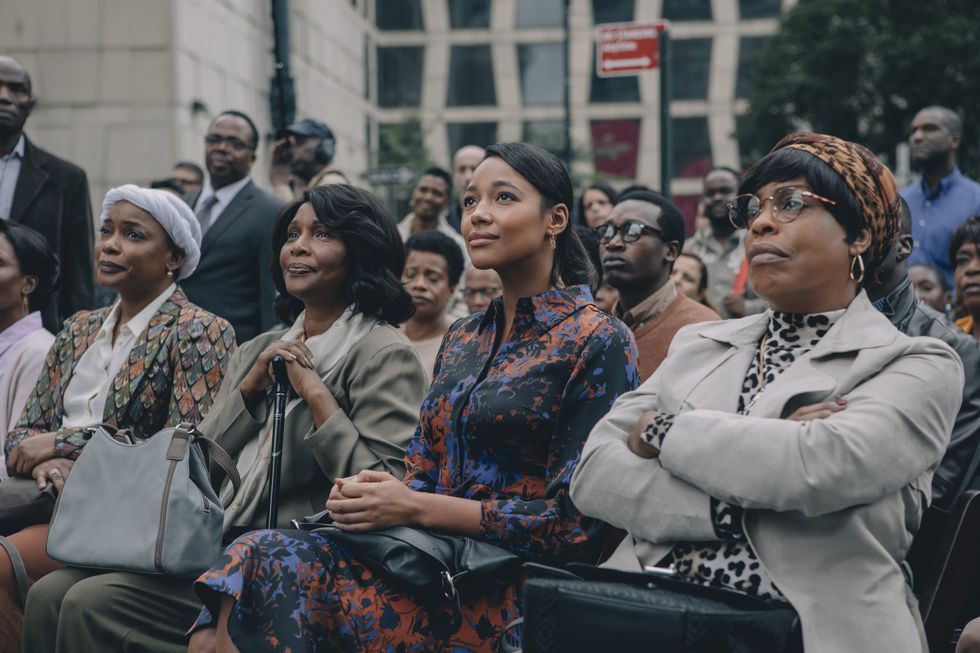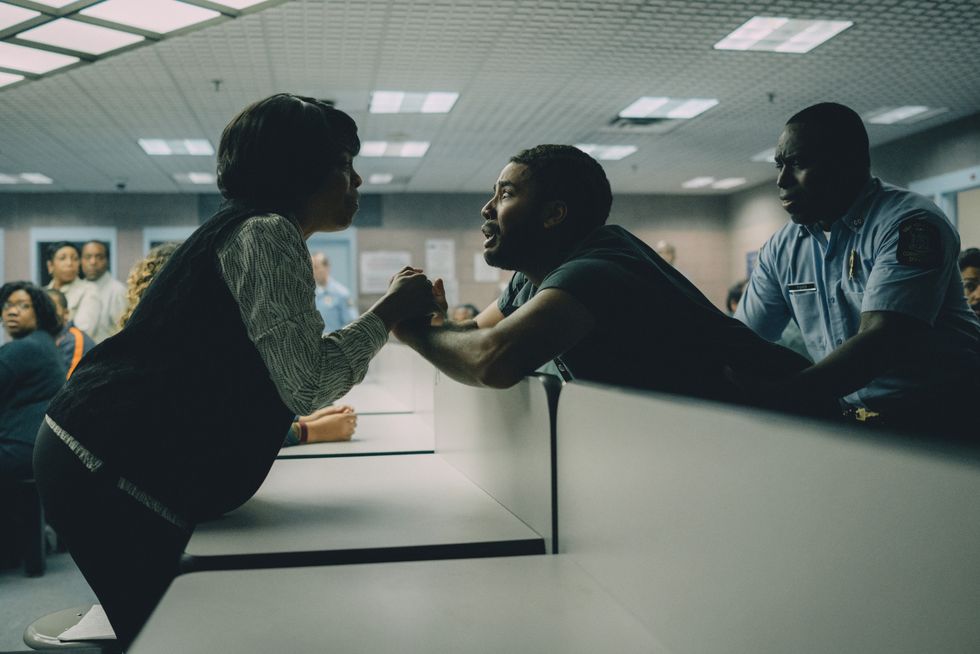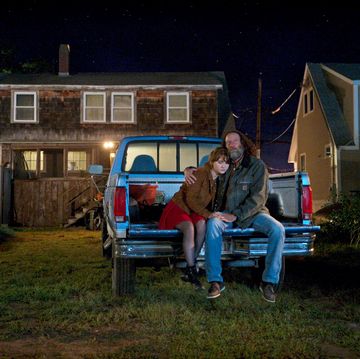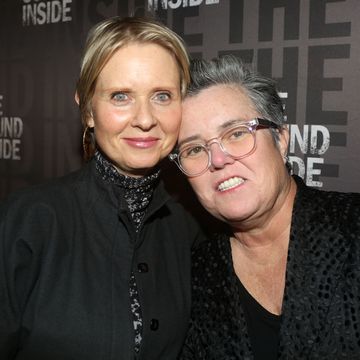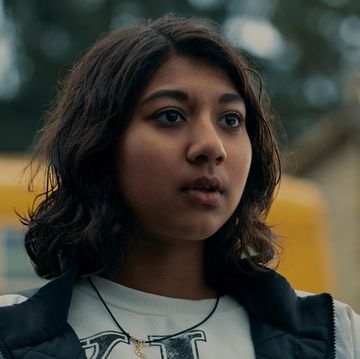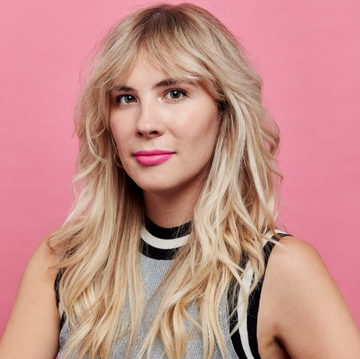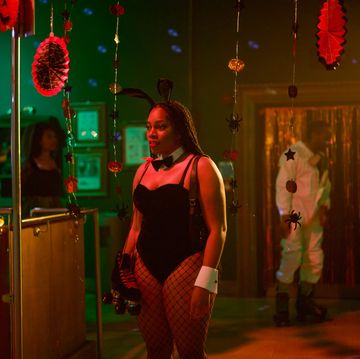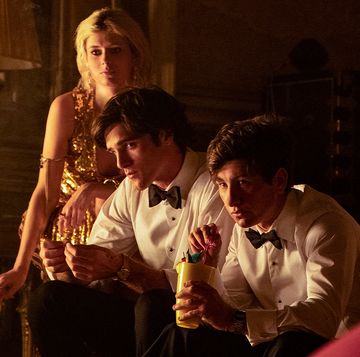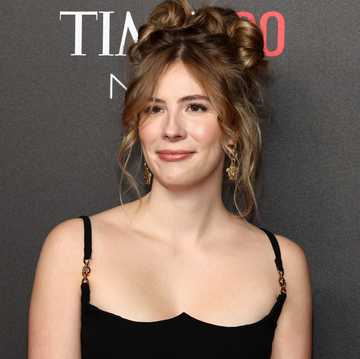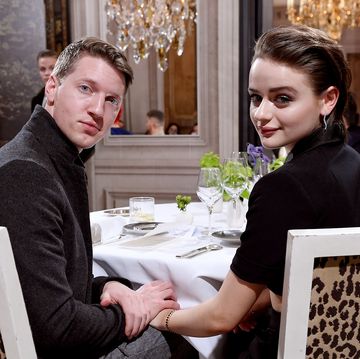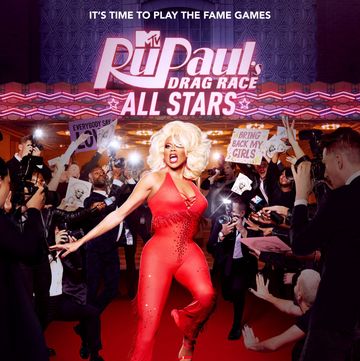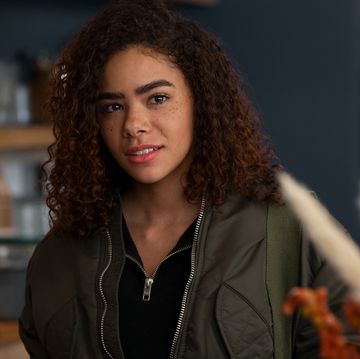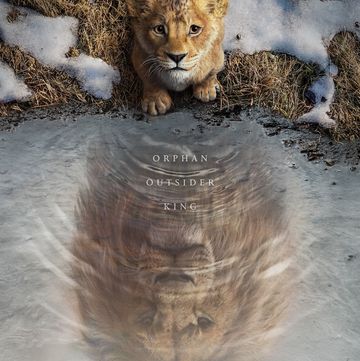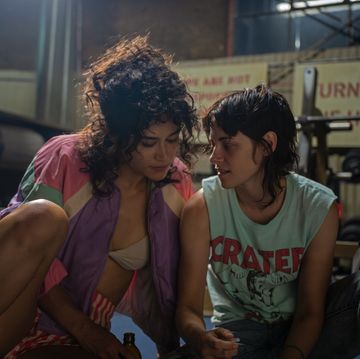Take whatever you expect of Niecy Nash—big laughs, award-winning pathos, a quick-fire real-life wit—and put it to the side. The actress, comedian, reality show host, and more has built a career on defying every expectation and, despite years of success, it seems she's only getting started. To date we've seen her hop from Comedy Central's Reno 911, in which she played the bold Deputy Raineesha Williams, to HBO's Getting On, where her Didi Ortley was the calm in the middle of a dark comic storm. She’s taken on the un-killable slapstick scene-stiller Denise Hemphill in Ryan Murphy’s Scream Queens and guilt-ridden AA group leader Louise Bell on Showtime's Masters of Sex. On May 31, you can see her most substantive dramatic role to date—Delores Wise, mother of one of the Central Park Five, in Ava DuVernay's When They See Us.
Nash has been steadily working in a variety of roles, large and small, for over two decades, but audiences first discovered her as a punchline-delivering powerhouse, a role she took to but doesn't want to be limited by. "I've done multi-cam, single-cam, comedy, drama, hosting, news reporting," she says matter-of-factly. "I was a dancing star. Now we can add 'director.'" She's finally in full bloom: "You get the real thing now. It's got some seasoning on it. It's been through the fire and came out fine. I'm in it now."
Audiences will be treated to a double dose of the real thing this summer: first in When They See Us, and then in the third season of sun-drenched pitch-black comedy Claws, in which Nash plays the driven, morally ambiguous lead Desna Simms—the sort of central anti-hero, it should be noted, we normally might associate with white male actors. But that expectation is no match for Nash. In addition to leading Claws on-screen, this season Nash has directed an episode, a role she attacked with her usual pizzazz. "I love telling people what to do. Love it," she tells ELLE.com. A Niecy Nash set sounds like a party, gifts included. "You know, a little Stevie Wonder, a little Chaka Khan. I brought in a second line band to celebrate the episode. Coffee and beignets. I gave out t-shirts. All sorts of things to just say, I really appreciate you."
While the journey to this moment has been a career-long effort, a definitive pivot in perception came in 2013, when Nash won her role on HBO's melancholy wonder Getting On. Playing against type as cheerful, serene palliative care nurse Didi, she earned two Emmy nominations. New options opened up. "I don't know why the industry was so resistant to me doing it," she says. "Because people who can make you laugh can make you cry."
Do you feel like you've been underestimated or people have put you in a box during your career?
In this business they told me, "You only do one thing. You do over-the-top broad comedy. That's your lane." "Well," I said, "I would like to try to do something new." But the industry said, "No, dear, not for you." It took me a very long time to prove that I could do what I knew I could do. And once I did it, the first time I was let into another genre of the business, I was nominated. I ended up being a two-time Emmy nominee from my work on Getting On. Which is how Ava [DuVernay] even discovered me. I did Selma with her and I did the Beyoncé and Jay-Z "Family Feud" video, when the women are running the country.
Before Claws and When They See Us, had you worked with a lot of other black women directors?
Wish I had. I'm a black woman who's the lead of her own show. So other women who come to direct me have looked like me—yes. I will tell you that.
I absolutely love working with Ava. She's what I call grace under fire. No matter what is happening, you are not going to see her on set frazzled. You are not going to see the wheels fall off of it. When They See Us is the first job I've ever been on that provided crisis counseling when you got off work at the end of the day. Because the material is so weighty, and it's so heavy, and you feel the effect of it, whether you are filming it or acting in it, or being background in it or whatever it is. I love that she has that level of care for her actors.
You directed an episode of Claws. Had you been taking notes?
Always. Even as busy as she is, took the time to reach out to me to be like, Here's what you can look out for, let me know if you need anything. She's loving and very giving. She takes a lot of care for her actors, but I'm lucky enough now to call her my friend.
With Claws, you're the lead, you have a lot of say in what goes on and who you're bringing in. How did you approach that responsibility?
The first season, I felt a lot of pressure because as an African-American woman leading the show, if it failed, statistically it would have probably taken me about four years to get another lead of a series. I was micromanaging everything because I wanted it to go so well. By the third season, I could come on in and direct, and keep building. The goal is to become a producer in season 4. I didn't feel that the responsibility was too much—I welcomed it.
With these new developments in your career, do you find yourself gravitating more toward comedy or drama?
They are equally as rich. People say, "Do you prefer comedy or do you prefer drama?" I prefer work. Mama got bills. I prefer work. But I do find an immense joy in making people laugh.
Do you see this as a second wave in your career?
I don't know about second wave, but I love the fact that we are still viable and bankable. Because a lot of times the industry may lead you to believe that were it not for the ingenue, the industry would fall on its ear. That's not the case. I mean Laurie [Metcalf], Alex [Bornstein], me, Christine Baranski, Viola [Davis]. The fact that we can still move around in this business and be viable contributors, I think that's the blessing.
What can one do to push back against the entrenched ageism in the industry?
You have to be committed to working with other people who get it. I play a woman on the south side of 40. In the history of my show, I don't think I've had a lover that was my age. I'm having sex for my own pleasure; it has nothing to do of being of service to anyone other than myself. She's not married, she doesn't have children. It represents a lot of the women in my life. I'm excited for women to see themselves in my character in that way.
Whatever the genre, there's always a deep affirmation of worth coming from your characters. That's especially true in When They See Us.
With Delores, I tried to lean into the fact that we're both mothers. At a given point, they give you this little baby, you walk out of the hospital, nobody stops you. You know, when I left with my kids from the hospital, I was waiting for somebody to say, "Hey, lady, bring that baby back!" They let you leave with a child, not knowing your own trauma, your past. Any mental or emotional things you may be dealing with. And you have another life that you're now responsible for. It can be a very scary place. But wherever you are, I feel like we're all doing the best we can at that moment.
Then there's the other part of it, when you are helpless and there is nothing you can do, you feel like you've failed your child. [In When They See Us], the day when they pulled the kids out of the courtroom was gut-wrenching for me, as a parent. I can't look at this young baby and not see my own son.
Lastly, the other part I leaned into was her pain. There was a lot of pain and a lot of disappointment in herself, in the system, in her feeling outcast from the other mothers.
In this film, some of the parents' best intentions are either the wrong thing to do or they didn't know what the right choice was.
You know, that was hard. I wouldn't have made some of the choices that Delores made, but at the same time, I wasn't in her shoes. I didn't come from where she came from. Whereas I can say, I would want the best for my children, and I will try to get that for them somehow.
You've been recognized for your work in the past. Are awards a way you measure your success?
I think it's wonderful to be recognized by your peers. We all want to wax eloquently about our chosen field. If that recognition is a part of it, I welcome that. But more important for me, though, is to be of service in the world. My job is my do, but my who is to be of service. So when I get on a job, I've never not gotten somebody else a job on that show. I don't care what it is. You need your music placed in the episode, assistant, acting, PA, grip—I will make sure that some people that I know are eating because I got a job. That's number one.
Two, there are times when you find a project that inspires you to be of service in another way. When I wrapped When They See Us, I was like, I am forever changed. I ended up becoming an ambassador for The Innocence Project. Using my platform and my voice for that. I actually had the opportunity to go to Atlanta and speak on the panel with—they're men now, but the boys who were convicted—from the Central Park Five, and other people who had also been in a similar situation. Whatever it is, if they call me, I'll show up.
When They See Us premieres on Netflix on May 31.
